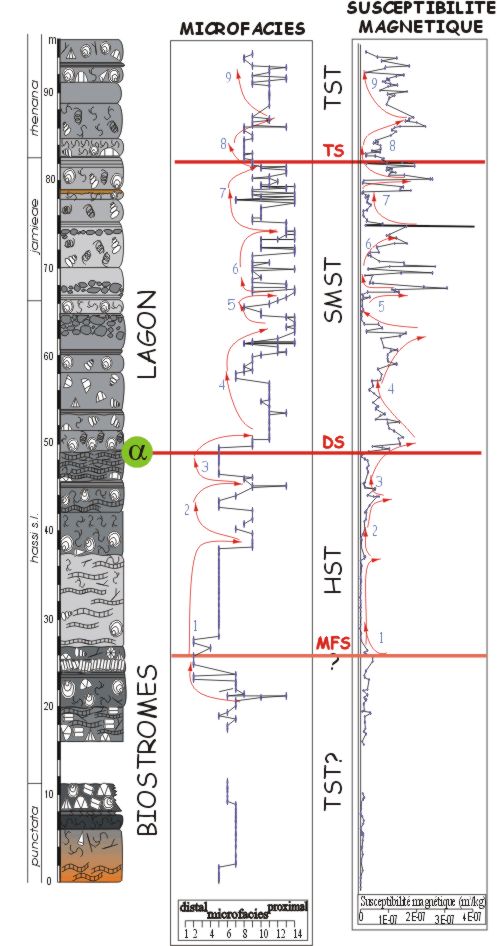
Exp359. JOIDES.Magnetic susceptibility: simply great !!
Magnetic susceptibility: the name could seem weird !
The process used now in sedimentology is smart.
2 points to know:
– Magnetic susceptibility measures the answer of a sample in response to an applied magnetic field. A kind of degree of magnetization of the material.
– In sedimentology, the magnetic susceptibility changes due to the minerals in the sample and some minerals are especially interesting .
Some parameters can influence the magnetic susceptibility:
- nature of these minerals in the sample
- quantity
- size
So what ?
The parameter’s variations can be due to:
– Variations of the climate, if rains are increasing –> more sediments drifting –>minerals quantity increases: magnetic susceptibility increases.
– If sea level lowers –> weathering increases and sediments drift increases: magnetic susceptibility increases.
(opposite if the sea level increases)
– Relief creation (orogeny): it will be a source of erosion and in this way a source of sediments drifting: magnetic susceptibility will increase
So, for the sedimentologists, since the 1990’s, magnetic susceptibility allowed :
– to relate sections comparing the magnetic susceptibility curves
– to identify climates changes
– to reconstruct sea level variations
and finally to rebuild past climates.